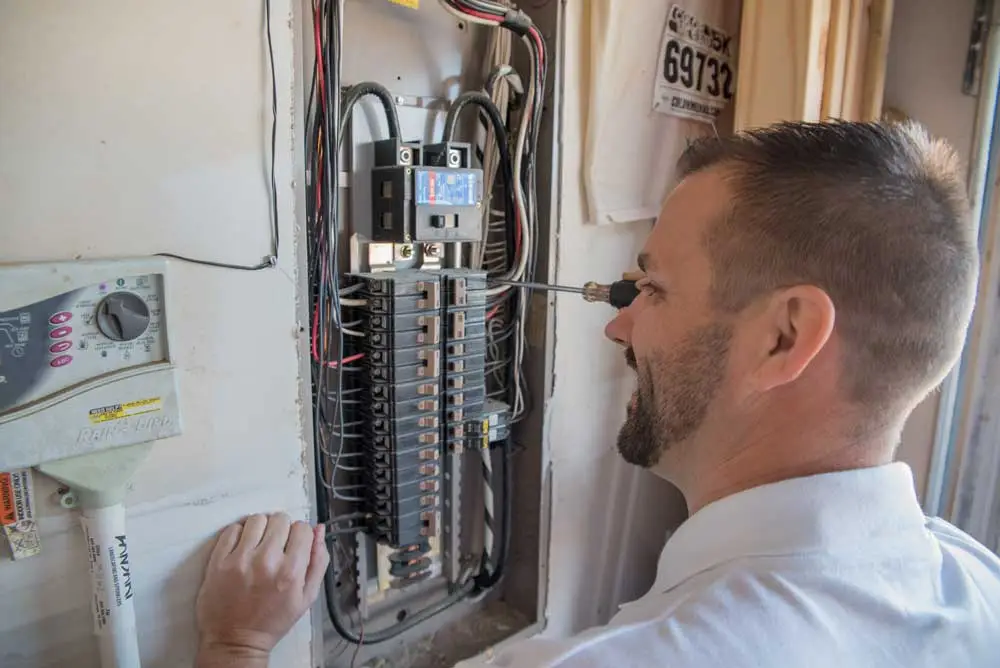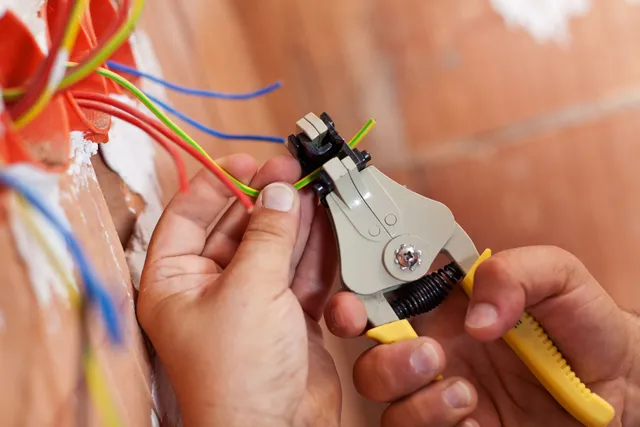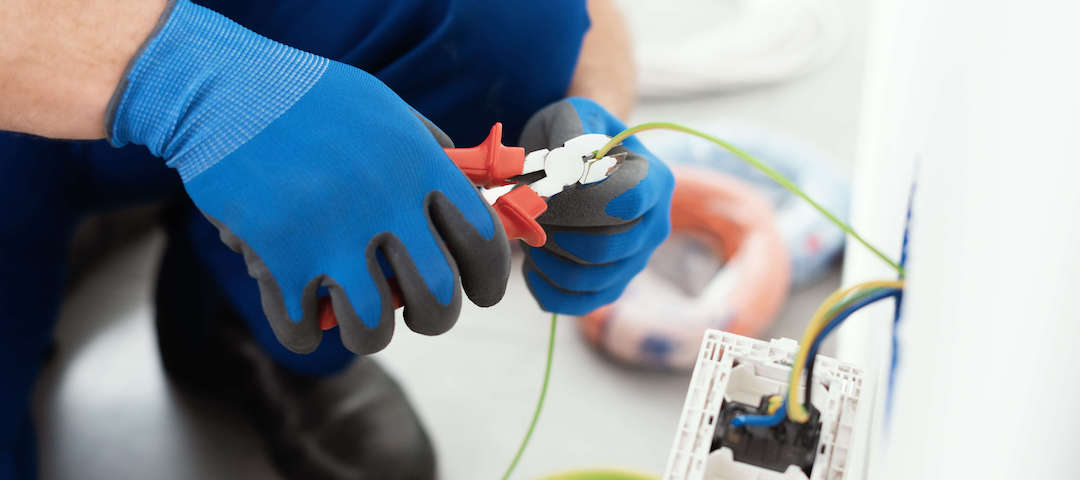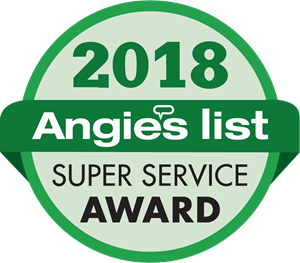
How to Prepare Your Irving Home for an Electrical Inspection
Ensuring your home is electrically safe and up to code is essential, especially if you’re planning to buy, sell, or renovate.
One of the best ways to achieve this is by scheduling a professional electrical inspection. A licensed electrician in Irving can help assess the condition of your electrical system, identify potential hazards, and ensure compliance with safety standards.
To make the process smoother and more efficient, it’s essential to prepare your home beforehand.
Here’s a step-by-step guide to help you get ready for an electrical inspection.
-
Understand the Purpose of the Inspection
Before preparing for an electrical inspection, it’s crucial to understand why it’s needed. Electrical inspections ensure that your home’s wiring, circuits, outlets, and panels meet safety regulations.
They help prevent electrical hazards such as fires and electrocution while ensuring that your system is functioning efficiently.
Some common reasons for an electrical inspection include:
- Buying or selling a home
- After a major renovation or remodeling project
- Before installing new electrical appliances
- Routine safety checkups
-
Check for Visible Electrical Issues
Start by conducting a preliminary check of your home’s electrical system. Look for:
- Exposed or frayed wires
- Flickering lights
- Frequent circuit breaker trips
- Burnt outlets or switches
- Overloaded power strips
If you notice any of these issues, it’s advisable to call an electrician before the inspection to get them fixed.
-
Ensure Easy Access to Electrical Panels and Outlets
Inspectors need access to your electrical panel, circuit breakers, outlets, and wiring. Ensure that these areas are easily accessible by:
- Clearing any obstructions around your electrical panel
- Moving furniture away from outlets and switches
- Providing a safe, clutter-free path for the inspector to navigate your home
This will save time and allow for a thorough assessment.
-
Test Your Circuit Breakers and GFCI Outlets
Ground Fault Circuit Interrupter (GFCI) outlets are required in kitchens, bathrooms, and other moisture-prone areas. Test them by pressing the “test” button; the outlet should immediately shut off. Press the “reset” button to restore power.
If any GFCIs are not functioning properly, consider replacing them before the inspection.
Additionally, test your circuit breakers by flipping them off and on.
If you notice any tripping issues, have an electrician inspect the panel beforehand.
-
Label Your Electrical Panel
Having a clearly labeled electrical panel can make an inspection smoother. Each circuit breaker should be labeled according to the area of the home it controls.
This helps the inspector understand your home’s electrical layout and ensures quick identification of any potential issues.
-
Remove Extension Cords and Overloaded Power Strips
Many homeowners use extension cords as a temporary solution for additional power needs. However, they can be seen as a safety hazard during an inspection.
Unplug unnecessary extension cords and avoid overloading power strips to maintain compliance with safety standards.
-
Check Smoke Detectors and Carbon Monoxide Alarms
A properly functioning smoke detector and carbon monoxide alarm system are essential for home safety.
Replace dead batteries and ensure all units are operational before the inspection. Inspectors may check for compliance with local fire safety codes.
-
Address DIY Electrical Work
If you or a previous homeowner have performed any DIY electrical work, it’s important to have it reviewed by a professional.
Unpermitted or faulty wiring can lead to code violations and safety hazards. Hiring a licensed electrician to fix any unapproved modifications can help avoid complications during the inspection.
-
Gather Relevant Documentation
If you have previously had electrical work done, keep documentation handy. Permits, past inspection reports, and receipts for electrical work can be useful for the inspector to review. Having these on hand may speed up the process and provide clarity on any prior upgrades or repairs.
-
Schedule a Pre-Inspection Consultation
If you’re unsure about your home’s electrical condition, consider scheduling a pre-inspection consultation with a professional.
A licensed electrician in Irving can identify issues beforehand and help you make necessary corrections before the official inspection, increasing your chances of passing without any hiccups.
Why Hiring a Local Electrician is Essential
When preparing for an electrical inspection, hiring a licensed electrician in Irving or any other local electrician is important for several reasons:
- Knowledge of Local Codes: Local electricians are familiar with state and city electrical codes, ensuring that all work meets compliance standards.
- Quick Response and Availability: A local professional can address issues promptly and provide faster service when needed.
- Familiarity with Local Infrastructure: Understanding regional electrical infrastructure helps in diagnosing and solving problems efficiently.
Conclusion
Preparing for an electrical inspection doesn’t have to be stressful. By taking proactive steps, such as addressing visible issues, ensuring easy access to electrical components, and testing outlets and breakers, you can streamline the inspection process.
If you need professional assistance, Blessed Electric & Air is your trusted partner for top-notch electrical services.
Since 2016, their experienced team of licensed electricians in Irving has been committed to providing reliable solutions, from routine inspections to complex electrical projects. Their services include:
- Electrical Panel Service
- Landscape and Outdoor Lighting Installation
- Electrical Safety Inspections
- Surge Suppression
- Ceiling Fan Installation
- Rewiring Services
- LED Lights Installation
With their expertise, you can ensure your home is safe, compliant, and ready to pass inspection with ease. No job is too big or small for their team – they have the skills and experience to handle anything you need.
Recent Posts

Common Electrical Problems in Older Fort Worth Homes

Why a Licensed Electrician is Essential for Home Renovations in Burleson

How to Prepare Your Irving Home for an Electrical Inspection






